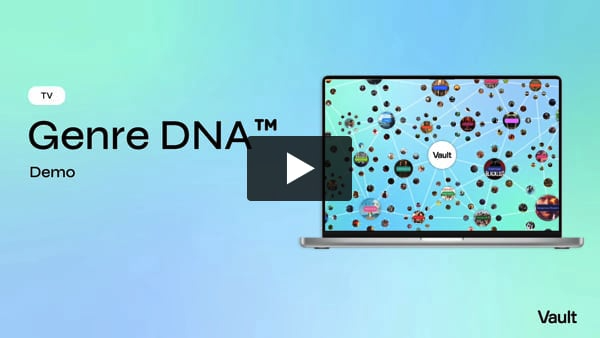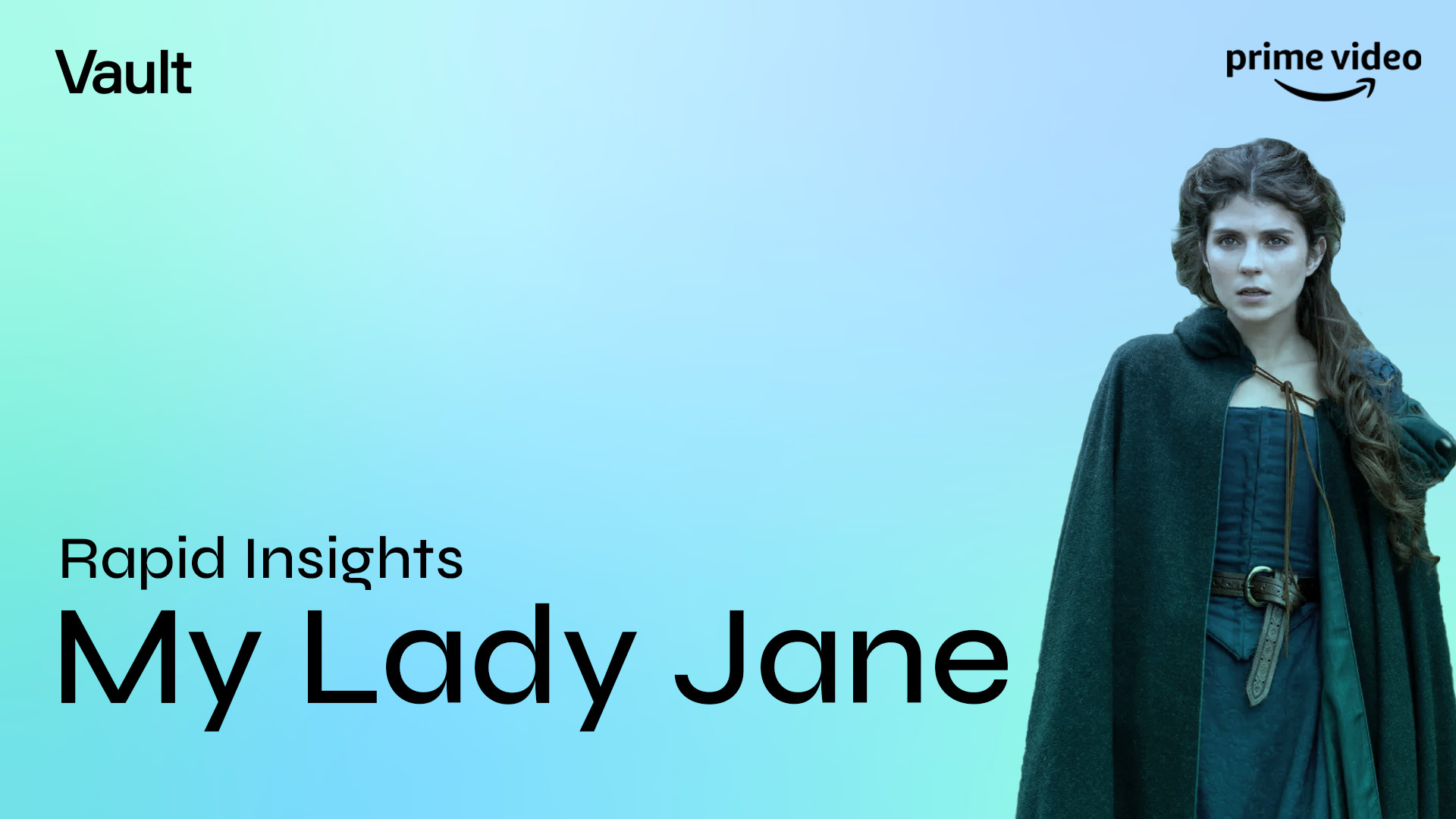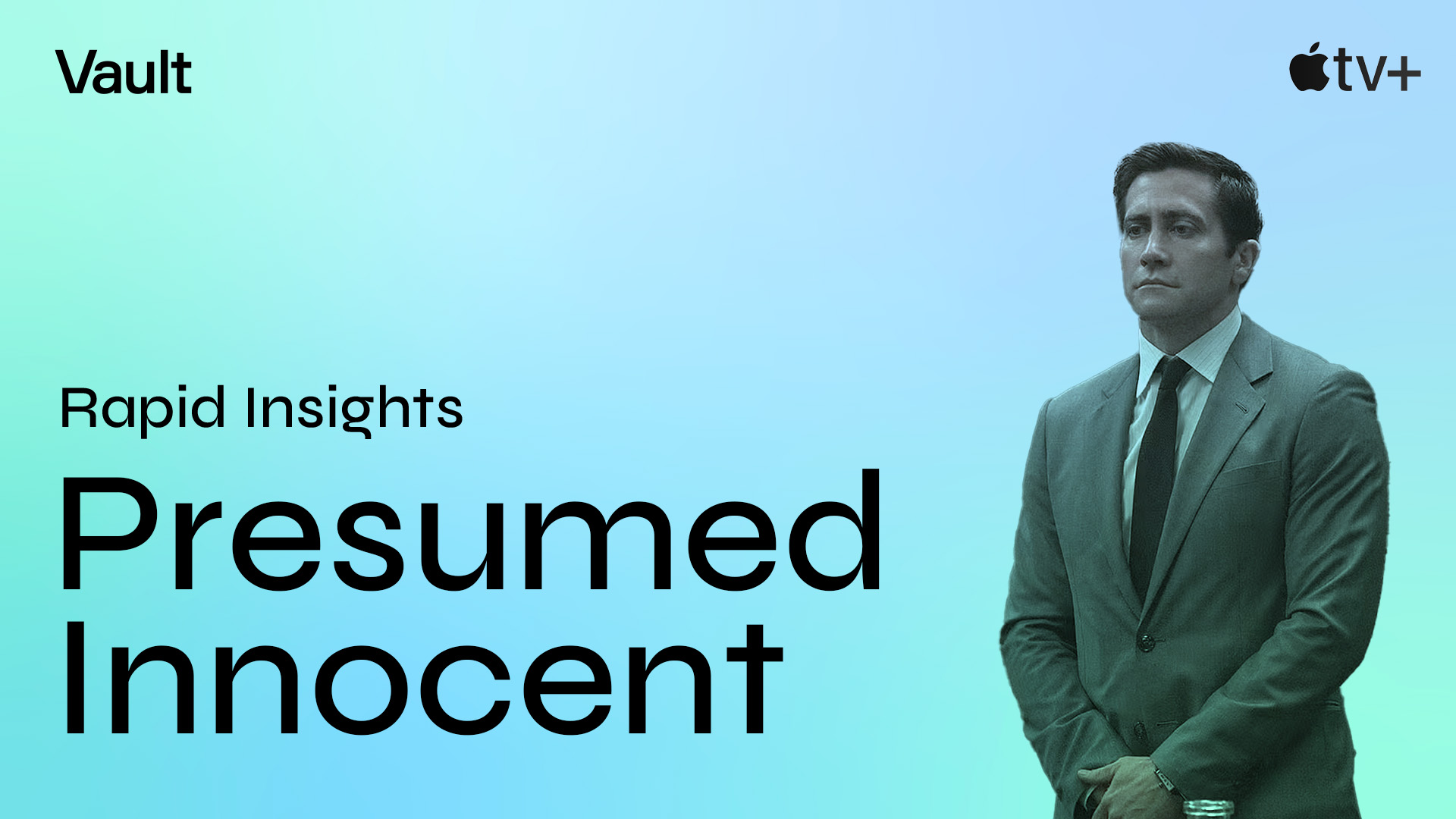This coming Thursday, Peacock will be premiering a much-anticipated new epic drama inspired by the same 1958 book that gave rise to the Oscar-winning film Gladiator. Directed by Roland Emmerich and starring Anthony Hopkins, the new series explores the violent, corrupt world of bloody, do-or-die gladiatorial competition in Ancient Rome.
Here’s what you need to know about Those About to Die:
Vault uses index scores to describe the impact a given story/theme/element will have on specific KPIs:
≤79 Disappointing 80-89 Challenging 90-109 Average 110-119 Promising 120+ Outstanding
Who will be tuning in for this historical epic?
Men. Thanks largely to its focus on brutal arena battles, we anticipate an audience that’s mostly male (65%) and mostly aged 30+ (65%). This profile is similar to other action-heavy series like Citadel, The Continental, Vikings, and DMZ, as well as fellow sword-and-sandals dramas Rome and Spartacus.
Why will viewers be adding Those About to Die to their queue?
For the Roman Battle Action (148). The biggest ratings draw for this saga is the bloodthirsty Action & Violence (127) taking place in the unique environs of Ancient Rome (Distinctly Realized World, 129), which features ultra-high-stakes gladiator combat where only the winners survive (Life in Danger, 125). In leaning on brutal spectacle to pull in viewers, the series joins similar epics boasting original, fully-fleshed-out worlds like House of the Dragon, Wheel of Time, and The Legend of Vox Machina.
What type of viewing experience will audiences be looking for?
An emotional roller coaster. Amidst its ferocious battles, the series promises a suspenseful mix of ups and downs that will in turn exhilarate and distress, with viewers carried along by the shifting inner turmoil of the gladiators as they cycle through emotions: from Surprise (116) to Vigilance (118), Awe (118) to Terror (116), Optimism (118) to Anger (113) and Aggressiveness (113).
What will keep audiences hooked?
The political intrigue. In addition to the Circus Maximus, the show spotlights a vicious competition for power and influence (Power Struggle, 113) among players from all levels of Roman society, with enough Ambition & Drive (111) to make them dangerous. With contenders as varied as Emperor Vespasian and his sons, a savage boss of the criminal underworld, a patrician couple adept at pulling secret strings, skillful gladiator mercenaries, and a Strong Mother (113) desperate for Vengeance (120) after her son is forced into slavery, viewers will be kept on the edge of their seats wondering who will prevail. The fact that the series is Based on Historical Events (112) makes it that much more compelling.
What will help push Those About to Die to a second season?
The gladiatorial Competition (135). Thanks to its to-the-death style of fighting, the show effectively features an Elimination Game (119) where any combatant in the ring (or, more broadly, any character fighting for power) could conceivably be killed off at any point. This ever-present sense of stakes helps create a robust story engine with the potential to drastically change the set-up for future seasons. Interestingly, Those About to Die depends on the same elements for its longevity as a number of reality game shows, including The Traitors, The Weakest Link, Ink Master, RuPaul’s Drag Race, and The Voice (as well as fellow drama Squid Game).
Redefine your understanding of TV subgenres
Introducing Genre DNA™ – TV subgenres redefined by groundbreaking AI analysis to reveal the true drivers of viewership.
See the insights that others can’t
Genre DNA™ goes beyond traditional TV genre classifications by analyzing over 1,000 scripted and unscripted series on both linear and SVOD platforms from the last 5 years.
Each Vault Genre DNA™ report offers a precise analysis of your chosen TV subgenre, uncovering its unique drivers of viewership.
*Publicly released trailers for series are evaluated using Vault’s algorithms – utilizing our proprietary 120K+ story element database alongside viewership performance and other datasets – to identify unique combinations of stories, themes, characters, and genre elements that will drive success.











